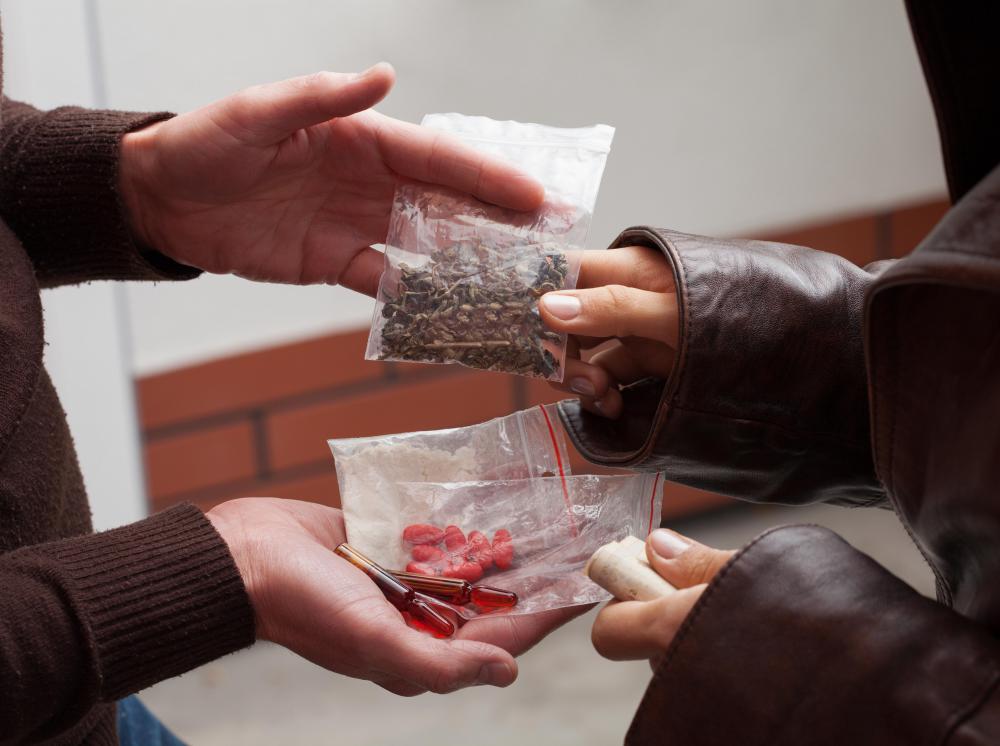At WiseGEEK, we're committed to delivering accurate, trustworthy information. Our expert-authored content is rigorously fact-checked and sourced from credible authorities. Discover how we uphold the highest standards in providing you with reliable knowledge.
What are the Different Types of Drug Trafficking Laws?
Drug trafficking laws vary by country and region, but generally include distribution, manufacturing, and dispensing certain categories of controlled substances. Usually, the drugs are classified according to type and the addictive nature of the drug. Highly addictive narcotics like heroin and crack typically fall into one class, while marijuana and prescription drugs are considered less harmful. International drug trafficking laws are commonly handled under customs law.
Possession of drugs with the intent to sell routinely falls under drug trafficking statutes. If someone is found with a large amount of narcotics, it may be presumed that he or she intends to distribute the drugs for money. Different regions determine how much and what kind of drug is considered outside limits for personal use. Penalties for violations of these drug trafficking laws are often based on the quantity of the substance and its type.

Those who manufacture drugs may be charged under drug trafficking laws in most places. These sections of the law typically include possession of chemicals or equipment needed to make the controlled substance. Narcotics laws in each country outline the exact chemicals or equipment considered illegal.
Drug trafficking laws may include a provision that allows law enforcement to seize assets used to commit a crime. For example, if drugs are sold from a house or vehicle, a judge may order that those assets be forfeited to the government. The property is typically sold at a public auction, with the proceeds going to fund narcotics operations.

The laws differ for drugs that are given away as opposed to sold. In the United States, when drugs are dispensed without charge, it is sometimes considered trafficking. In Spain, gifts of narcotics may be legal if there is no risk that the drugs are being given to a non-user. In Italy, it is legal to purchase certain drugs for personal use. Most countries, however, prohibit giving any type of drug to minors.

Supplying drugs to children or using minors to distribute narcotics generally carries tougher penalties than those that apply to adults. In some areas, maintaining a home for the purpose of making or distributing drugs where children live is also considered a more serious drug trafficking offense. Stiffer sanctions might also be imposed for those who sell drugs near schools, playgrounds, arcades, and other areas where children congregate.

Laws also exist that regulate drug trafficking by criminal gangs or organized groups. Penalties might be enhanced if weapons are used in the distribution of a controlled substance. Those with profits from organized sales of narcotics can also be prosecuted under money laundering statutes in some jurisdictions.
AS FEATURED ON:
AS FEATURED ON:














Discuss this Article
Post your comments